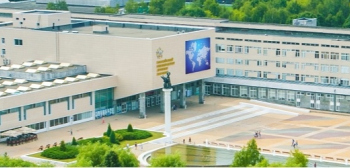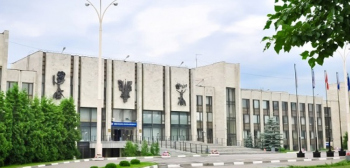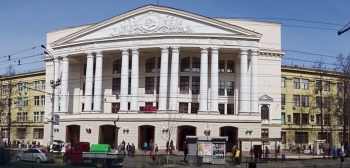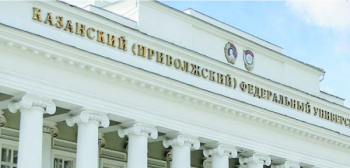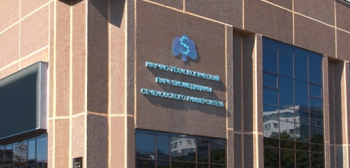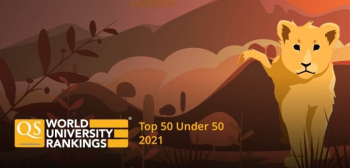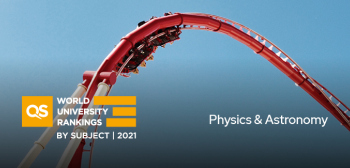- #1401+ QS Global World Ranking
- PublicStatus
- HighResearch Output
- 12,723Total Students
- 970Faculty
- 2,753Int'l Students
The University’s position in the current QS World University Rankings.
Whether the University is funded by the government of that country or state, or funded by private donations.
The research intensity of the University, based on the number of papers output relative to the University’s size.
The number of full time equivalent students enrolled at the University.
The number of full time equivalent teaching staff employed by the University.
The number of full time equivalent international students enrolled at the University.
The National Research University "Belgorod State University"
About
In 2020, the University offers 124 master’s degree programs, over 100 post-graduate programs (both PhD and higher doctorate degrees) in 25 research areas, and 31 residency training programs for medical graduates.
As of December 31, 2019, there are 706 post-graduate students at BelSU, including 72 foreign citizens from 27 countries. In 2019, 233 post-graduate students were enrolled at BelSU, including 41 foreigners.
Since 2015, Belgorod State University has been an official member of the Darkside collaboration, which is an international affiliation of universities and research labs seeking to detect dark matter. Apart from this, the University is currently enjoying active collaboration with 77 international partners, both in education and research, on a regular basis, with many more foreign universities involved in ad hoc projects.
The research at Belgorod State University is carried out in 51 areas, of which 22 are in Social Sciences and Humanities and 29 are in Technical and Natural Sciences. The University hosts 2 scientific schools. The scientific and innovative infrastructure of the University comprises 2 research institutes, 55 research centers and laboratories, including 7 international laboratories, BelSU High Technologies Park, a specialized design offices, 2 resource sharing centers, an engineering center, and 3 pilot production sites.
Among the leading scientific and innovative divisions for conducting research on the national and international levels are Research Institute of Materials Science and Innovative Technologies; Research Institute of Pharmacology of Living Systems; Research Laboratory of Problems of Development and Implementation of Ion-Plasma Technologies; Center for Nanostructured Materials and Nanotechnologies; Resource Sharing Center for Technologies and Materials; International Research Laboratory of Radiation Physics; Regional Microbiological Center; Engineering Center; Research Laboratory of Information-measuring and Control Complexes and Systems; Research Laboratory of Intelligent Automated Control Systems; Federal Regional Center for Aerospace and Ground Monitoring of Objects and Natural Resources, International Research Laboratory of Applied Biotechnology (partnering with scientists from Armenia and the Netherlands), Center for Genomic Selection, etc.
At the moment, the University faculty includes 294 doctors of sciences (higher doctorate degree holders), 841 candidates of sciences (PhD-holders) and 17 full-members and corresponding members of the Russian Academy of Sciences.
To help potential post-grads make their choice, the University annually runs a “Winter School for Future Post-grads” which is aimed at facilitating those who are interested in research to select a program to their liking from a wide range of options offered at Belgorod State University.
About
In 2020, the University offers 124 master’s degree programs, over 100 post-graduate programs (both PhD and higher doctorate degrees) in 25 research areas, and 31 residency training programs for medical graduates.
As of December 31, 2019, there are 706 post-graduate students at BelSU, including 72 foreign citizens from 27 countries. In 2019, 233 post-graduate students were enrolled at BelSU, including 41 foreigners.
Since 2015, Belgorod State University has been an official member of the Darkside collaboration, which is an international affiliation of universities and research labs seeking to detect dark matter. Apart from this, the University is currently enjoying active collaboration with 77 international partners, both in education and research, on a regular basis, with many more foreign universities involved in ad hoc projects.
The research at Belgorod State University is carried out in 51 areas, of which 22 are in Social Sciences and Humanities and 29 are in Technical and Natural Sciences. The University hosts 2 scientific schools. The scientific and innovative infrastructure of the University comprises 2 research institutes, 55 research centers and laboratories, including 7 international laboratories, BelSU High Technologies Park, a specialized design offices, 2 resource sharing centers, an engineering center, and 3 pilot production sites.
Among the leading scientific and innovative divisions for conducting research on the national and international levels are Research Institute of Materials Science and Innovative Technologies; Research Institute of Pharmacology of Living Systems; Research Laboratory of Problems of Development and Implementation of Ion-Plasma Technologies; Center for Nanostructured Materials and Nanotechnologies; Resource Sharing Center for Technologies and Materials; International Research Laboratory of Radiation Physics; Regional Microbiological Center; Engineering Center; Research Laboratory of Information-measuring and Control Complexes and Systems; Research Laboratory of Intelligent Automated Control Systems; Federal Regional Center for Aerospace and Ground Monitoring of Objects and Natural Resources, International Research Laboratory of Applied Biotechnology (partnering with scientists from Armenia and the Netherlands), Center for Genomic Selection, etc.
At the moment, the University faculty includes 294 doctors of sciences (higher doctorate degree holders), 841 candidates of sciences (PhD-holders) and 17 full-members and corresponding members of the Russian Academy of Sciences.
To help potential post-grads make their choice, the University annually runs a “Winter School for Future Post-grads” which is aimed at facilitating those who are interested in research to select a program to their liking from a wide range of options offered at Belgorod State University.
University highlights
- 2022#1001-1200
- 2023#1001-1200
- 2024#1201-1400
- 2025#1201-1400
- 2026#1401+
Campus locations
Campus 2,
85 Pobedy St. , Belgorod , Russia , 308015
Campus 1,
14 Studencheskaya St. , Belgorod , Russia , 308007
Campus 3,
21 Narodnyy Blvd. , Belgorod , Russia , 308001
Campus 4,
26/45 Popova St., Bldg.1 , Belgorod , Russia , 308000
Stary Oskol branch,
18 Solnechnyy district , Stary Oskol , Belgorod , Russia , 309502
Similar Universities
Samara National Research University (Samara University)
34, Moskovskoe shosse St., Samara
4 QS starsNational Research University Moscow Power Engineering Institute (MPEI)
National Research University Moscow Power Engineering Institute, Moscow
Samara National Research University (Samara University)
34, Moskovskoe shosse St., Samara
4 QS starsRussian Institute of Theatre Arts (GITIS)
Maly Kislovskiy Lane, 6, Moscow
Kazan (Volga region) Federal University
18 Kremlyovskaya st., Kazan
=392 QS World University RankingsSechenov University
8-2 Trubetskaya street, Moscow
Related content
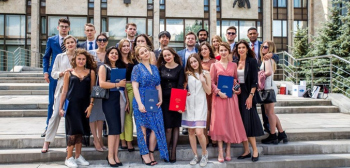
Why Russia is the Perfect St…
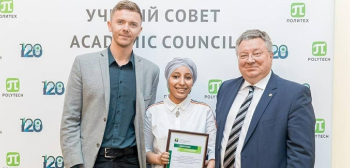
From Morocco to Russia: My S…

What Does Russia Have to Off…
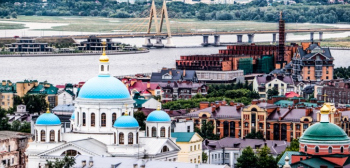
Study in Kazan
Test preparations
Featured University


-
10 UG & 47 PGTotal courses
-
Private for ProfitStatus
-
HighResearch output

